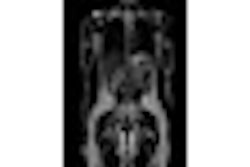It's become accepted that screening mammography is perhaps the best tool available for catching breast cancer early and improving treatment outcomes in women. But new research indicates that mammography's benefits can vary based on ethnic group: Minority women continue to use screening mammography less than other women, and they often present with more advanced cancer.
Dr. Nazia Jafri and colleagues at Boston University Medical Center in Boston surveyed underserved and predominantly minority women about their understanding of screening mammography, their desire for early detection, and their willingness to continue with annual exams once given a false-positive result. The study was published in Radiology online on October 21.
From December 2006 to July 2007, a total of 1,011 women who were to have mammography screening or diagnostic exams at Boston Medical Center's breast imaging center completed a survey in one of three languages: English, Spanish, or Haitian Creole. During the time the study was conducted, a total of 8,314 women came to the breast imaging center: the recall rate was 12%, and cancer was discovered in 2.6% of these 8,314 cases. The survey did not ask women to clarify whether they were having screening or diagnostic mammography on the day they visited.
The survey consisted of two parts. Part one covered demographic information (age, ethnic background, education level, annual income, family or personal history of breast cancer, number of prior screening mammograms, and history of recall). Part one also included a question that addressed potential noncompliance with recall and reasons why (fear of results, fear of further costs, transportation difficulties, inability to make time to return, and "other").
Part two of the survey addressed adherence to recall after false-positive studies, and asked the participants to estimate the sensitivity of mammography for the detection of breast cancer, their best estimate of the current recall rate, their risk of breast cancer, and their willingness to endure an increased recall rate for invasive or noninvasive testing if it meant that breast cancer could be found earlier.
Jafri's team analyzed the data across three groups: white, black, and Hispanic. Nine-hundred and eleven women were included in the final analysis: 378 (41%) were white, 439 (48%) were black, and 94 (10%) were Hispanic.
Differing perceptions
The three groups came to different conclusions about the sensitivity of mammography, with 40% of the white women correctly identifying the technology as able to detect 80% to 94% of cancers, compared to 28% for both black and Hispanic women. Meanwhile, 42% of the black women and 50% of the Hispanic women thought mammography had a higher sensitivity than it actually does, detecting 95% or more of cancers.
Of white women, 29% underestimated mammography's ability to detect cancer (less than 80% sensitivity), compared to 19% of black women and 15% of Hispanic women. Some 4% of white women declined to respond, compared to 10% of black women and 7% of Hispanic women.
After a false-positive result, 80% of black women were likely to continue screening in the future, 71% of Hispanic women were likely to continue, and 93% of white women were likely to come back for an annual exam.
Fifty-four percent of black women and 59% of Hispanic women were willing to return for a second, noninvasive procedure that carried the possibility of a higher detection rate, compared to 76% of white women; 53% of black women and 65% of Hispanic women were willing to be recalled for invasive studies, while 75% of the white women included were willing to undergo a second, invasive procedure.
"A similar percentage of Hispanic and white women expressed a preference for an increased recall rate for further invasive testing," Jafri and colleagues wrote, "while black women expressed a reluctance to comply with subsequent invasive or noninvasive testing. This may reflect a willingness of both white and Hispanic women to undergo a more definitive and conclusive test such as biopsy or surgical excision, as opposed to further imaging that may still lead to a degree of diagnostic uncertainty."
Fear was the most frequently cited reason for not returning for recall exams, the study found. Jafri's team suggests that minority women in the study's population may have been less likely to prefer an increased recall rate because of a limited understanding of mammography, or because of a belief that breast cancer is untreatable.
Forty-three percent of the women who participated in the survey reported a history of recall; more specifically, 34% of black women and 50% of Hispanic women. These findings suggest that black and Hispanic women are less likely to comply with recall due to self-selection bias, according to the researchers, although the team did concede that a limitation of the study was that the low percentage of patients who completed the survey may have biased the study to patients who had been recalled.
Differences between women of different ethnicities do exist, and understanding of mammography varies among subsets of women, which implies that more educational programs are crucial to the effort to increase compliance with mammography screening and diagnosis exams and therefore increase women's overall health, the authors wrote.
"Targeted education of minority women is needed to address cultural barriers to screening mammography and to improve breast cancer prognoses," they concluded.
By Kate Madden Yee
AuntMinnie.com staff writer
November 5, 2008
Related Reading
Breast ultrasound CAD performance varies in ethnic populations, September 5, 2008
Racial groups differ in prevalence of BRCA1 mutations, December 26, 2007
Diet may help feed racial disparities in cancer, July 10, 2007
Biological factors may underlie racial differences in breast cancer, April 18, 2007
Ethnic gaps in breast cancer linked to hormones, October 17, 2006
Copyright © 2008 AuntMinnie.com




















